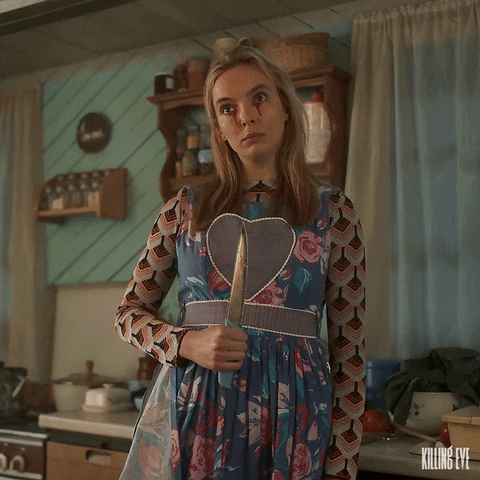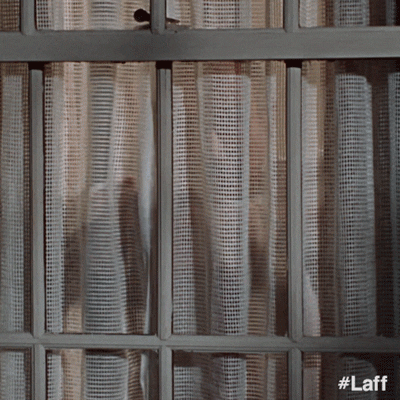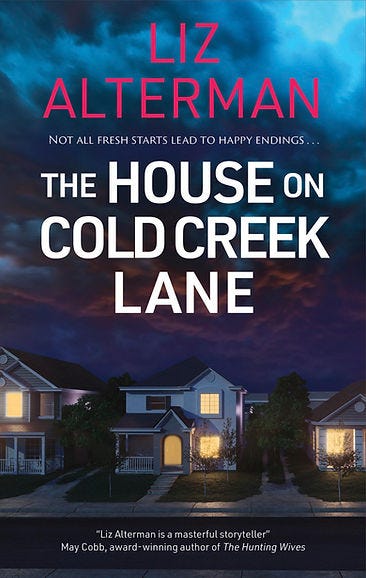The Value (& Fun) of Adding Humor to Suspense Writing
Contributor Liz Alterman, author of The Perfect Neighborhood and The House on Cold Creek Lane (forthcoming in August) shares the how and why of humor
Thanks to Liz Alterman for this guest-post, and boy oh boy, we are excited to read her August release!
I adore thrillers … almost as much as I love humor. When the two collide in one novel? Chef’s kiss.
As neither genre is easy to write, infusing suspense with humor may seem like a daunting task. But when it’s done well, it can elevate a story and provide readers with welcome comic relief. Who doesn’t love an unexpected laugh?
A little humor can go a long way toward making characters more interesting and relatable while creating a balance that eases the tension and gives the tale much-needed lightness.
For authors, adding a few funny bits here and there can feel like a sweet diversion from creating scheming characters and devising plot twists. That said, figuring out how to use humor and where to inject it in a thriller may be enough to strike fear in a writer’s heart. Used too sparingly, a funny line may feel out of place and clunky. On the flip side, add too many lighthearted moments and your book tips into a different genre.
After much trial and error, here are a few ways I’ve attempted to imbue darker novels with levity.
Give characters a sense of humor
When I wrote my young adult thriller, He’ll Be Waiting, weaving in humor didn’t seem so difficult. The novel is told from the first person point of view. Tess Porter, a 17-year-old, wakes up in a hospital and can’t recall the accident that landed her there. Because teens are hardwired for sarcasm and snark, Tess had plenty of amusing insights and droll observations despite her injuries.
As I began writing The Perfect Neighborhood, a suspense novel for adults, I wanted to temper the seriousness that surrounds a child’s disappearance with some lighter moments. Side characters, whose lives hadn’t been upended by the boy’s abduction, did a lot of the heavy lifting.
For example, Allison Langley, one of the main characters, lives with her quick-witted pal, Viv, who always speaks her mind. Allison notes,
When I’ve spoken with my parents from Viv’s apartment, she’s said, “You should probably call them less. You frown the entire time. Or, at least, bill them for your Botox.”
As a reader, I enjoy studying and appreciating how other authors put their characters to work in a humorous capacity without derailing the suspense.
I’m embarrassed to admit that until last fall I’d never read an Agatha Christie novel. When my book club selected Murder on the Orient Express I was delighted to find plenty of humor in the pages.
Obviously, I knew Detective Hercule Poirot would be clever, but I hadn’t expected him to be as funny and as wisecracking as he was.
Another caustic character I’ve come to treasure is Jackson Lamb from Mick Herron’s Slow Horses series. Lamb (brilliantly portrayed by Gary Oldman in the Apple TV adaptation) is the dry-witted, forever flatulent (appealing to the bathroom humor set) leader of a band of misfit M15 agents. In the midst of murder and mayhem, readers and viewers can count on Lamb to give them a much-needed humor break.
Humor can also help an author throw readers off the scent of a more sinister character or at least make them more complex.
Who can forget the funny and fabulous psychopath Villanelle (played to perfection by Jodie Comer) from the AMC series “Killing Eve,” based on the novel Codename Villanelle by Luke Jennings.
In Lisa Kusel’s forthcoming novel, The Widow on Dwyer Court, neighbors Kate and Annie–each quirky in her own way–have plenty of snappy dialogue and inside jokes that bond them quickly. But is it possible neither woman is who she seems? Here’s a sample:
“I am making for you, Miss Kate, mother of Finley, my molto famous Glory Bowl. More wine?”
“Yes, wow, I drained that pretty fast, didn’t I?”
“Cheers.” Annie clinks her glass against mine. “To new beginnings with new friends.”
“I’ll drink to that,” I say, smiling. “So, Miss Annie, mother of Terra, what’s a Glory Bowl?”
Annie starts grating a blood-red beet. “It’s a majorly popular Canadian dish I plagiarized. Lots of raw and cooked veggies, rice and tofu, topped with a sauce so good you’ll want to bathe in it. Believe me, sweetheart, eating this will add five years to your life.”
Poke fun at the setting
I set The Perfect Neighborhood in Oak Hill, a fictional town, which is a composite of the many New Jersey suburbs where I’ve lived and worked. Within these communities, there's a lot to satirize.
For instance, even the most well-intentioned neighbors frequently insert themselves in each other’s lives, providing plenty of comedic fodder.
There are also amusing sub-cultures within these cozy enclaves. In my novel, I made sure to include a few elements based on laughable real life happenings. Things like: secret basketball teams for vertically challenged (i.e. short) youth and middle school honors orchestra. (Apparently, plain old regular orchestra isn’t enough of an achievement).
In the town where I grew up, instead of competing with each other at Pickleball, people try to outdo their neighbors by making elaborate dinners for Meal Train recipients. (If you’re unfamiliar with the concept of a Meal Train, here’s how it works: people sign up to bring food to someone going through a challenging time.)
I’ve lost track of how often my mother has told me, “Jane (not her real name) is making Cornish hens, fingerling potatoes, and Haricots Verts for the Smiths! My baked ziti is going to seem so boring by comparison.”
After these women deliver their Michelin-star-worthy dishes, they wait for the thank-you notes to arrive. As if the recipient didn’t have enough on their plate, they’re now expected to gush about the meal they received! I pointed out this absurdity in The Perfect Neighborhood:
“Poor Rachel,” Betsy said. “Has anyone seen her lately? I brought her a meal a few weeks ago.” She lowered her voice. “She still hasn’t returned my Le Creuset.”
Similarly, in Andromeda Romano-Lax’s riveting The Deepest Lake, women travel to a luxury writers retreat in Guatemala. Though you’d think this would be a supportive, safe space, aspiring memoirist Jules disappears. When her mother, Rose, ventures to the remote spot in search of answers, she quickly realizes secrets run nearly as deep as Lake Atitlán. Romano-Lax skillfully and hilariously skewers the world of exclusive, high-priced retreats—and the characters who lead them–bringing a perfect counterbalance to the stress and tension Rose feels.
If you’re working on a thriller and think readers would appreciate a break from suspense, consider adding a bit of humor. At the very least, you’ll probably entertain yourself.
Thoughts on humor in suspense or recommendations of novels that combine dark snark with chills? Let us know!
Liz Alterman is the author of the memoir Sad Sacked, the young adult thriller He’ll Be Waiting, a finalist for the Dante Rossetti Young Adult Fiction award, and the domestic suspense novels The Perfect Neighborhood and The House on Cold Creek Lane. Her work has been published by The New York Times, The Washington Post, McSweeney's Internet Tendency, and numerous other outlets. She lives in New Jersey and spends most days microwaving the same cup of coffee and looking up synonyms. For more, visit lizalterman.com.









This was SUCH a great piece; thank you Liz!! I LOVE mystery and suspense that makes me laugh, and I agree with you that it's hard to master. My few jokes in my debut got edited out, I think because I fell into your observation that too few funny lines feel "out of place and clunky." I think my favorite of your advice is to poke fun at the setting (or the people who make up the setting). All communities have their funny quirks that are right at home in a novel!
Amazing tips, thank you for this! I find that I play with humor a lot more in short fiction and flounder a bit when adding it to novels. I appreciated these insights, they are so helpful!